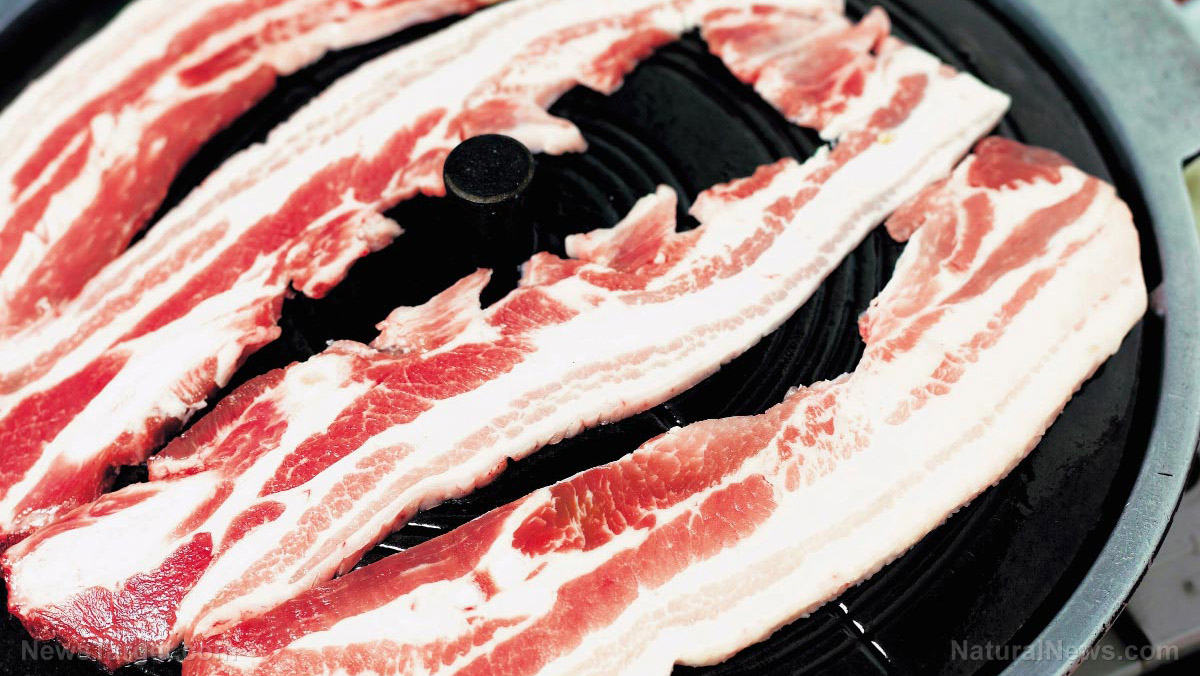Meat processing company that produces 10 percent of America’s pork supply shuts down due to coronavirus
04/27/2020 / By Ethan Huff

Another large domestic producer of pork has shut down its processing facility in Minnesota after an outbreak of the Wuhan coronavirus (COVID-19) was detected.
JBS SA decided to close its Worthington location after seven workers reportedly tested positive for the Wuhan coronavirus (COVID-19), a number that state health officials say is likely to rise.
The shuttering of this processing plant means that more than 10 percent of America’s hog slaughtering capacity is now on an indefinite hiatus. This is in addition to several other processing plants that have likewise shut down in recent days due to positive coronavirus test results.
“As we all learn more about coronavirus, it is clear that the disease is far more widespread across the U.S. and in our county than official estimates indicate based on limited testing,” said Bob Krebs, president of JBS USA Pork, in a statement.
“We have taken aggressive actions to keep coronavirus out of our plant and keep this critical infrastructure facility operational,” he added, not indicating when this plant might be reopened.
Listen below to The Health Ranger Report as Mike Adams, the Health Ranger, talks about how 5G technology amplifies the health damage caused by the Wuhan coronavirus (COVID-19):
Dozens of other meat processing plants have also closed in recent days
Besides this JBS facility, the following seven pork and beef processing plants have also closed their doors:
• Smithfield in Sioux Falls, South Dakota
• JBS in Greeley, Colorado
• Tyson in Columbus Junction, Iowa
• National Beef in Tama, Iowa
• Smithfield in Martin City, Missouri
• Smithfield in Cudahy, Wisconsin
• Hormel in Rochelle, Illinois
Each of these facilities has its own projected timeline for reopening, though several currently have an “unknown” status, meaning it is currently unknown when they might resume operations.
An investigation by USA Today found that there are actually dozens of meat processing plants throughout the United States that are experiencing outbreaks of the Wuhan coronavirus (COVID-19), and that many of these could also end up closing.
Since these facilities are where a bulk of America’s meat is processed and packaged, these closures bode ominous for the future of meat in our country, which could very soon result in widespread shortages.
Unbelievably, more than 150 of America’s largest meat processing plants operate in counties where the rate of infection with the Wuhan coronavirus (COVID-19) is said to be among the highest in the nation. This means that it is only a matter of time before the virus strikes them as well, likely resulting in even more closures.
“These facilities represent more than 1 in 3 of the nation’s biggest beef, pork and poultry processing plants,” reveals USA Today. “Rates of infection around these plants are higher than those of 75% of other U.S. counties.”
At Smithfield’s Worthington, Minn., plant alone, some 20,000 hogs are processed daily by 2,000 employees, at least under normal circumstances. Extrapolating this to the many other plants that are also closing, or are at least greatly reducing their processing capacity, we are talking about a whole lot of meat that isn’t making it to the supermarket anymore.
“Initially, our concern was long-term care facilities,” stated Gary Anthone, Nebraska’s chief medical officer, during a Facebook Live video chat with USA Today about the effect of the Wuhan coronavirus (COVID-19) on America’s meat supply. Nebraska, it is important to note, also produces much of America’s meat.
“If there’s one thing that might keep me up at night, it’s the meat processing plants and the manufacturing plants.”
Joshua Specht, an assistant professor of history at the University of Notre Dame who studies the meat industry, adds that if these closures remain in place for a long time, “there is a reality of a shortage.”
More of the latest news about the Wuhan coronavirus (COVID-19) is available at Pandemic.news.
Sources for this article include:
Tagged Under: China, Chinese Virus, Collapse, coronavirus, covid-19, disease, food supply, global emergency, Global Pandemic, groceries, infection, JBS SA, meat, minnesota, novel coronavirus, outbreak, pandemic, pork processing, shutdown, slaughterhouse, supply chains, virus, Wuhan, Wuhan coronavirus



















